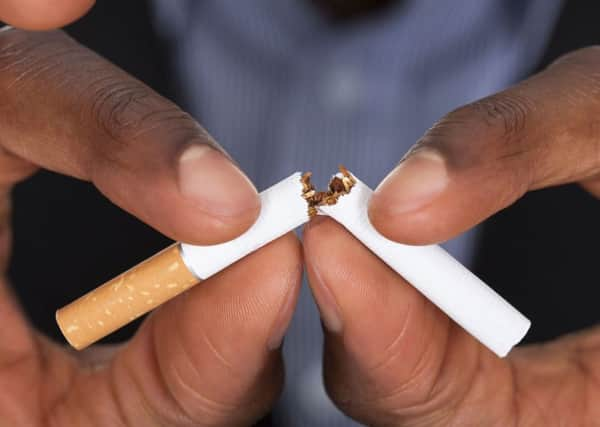Support is there to help kick the habit


Research shows there is a higher chance of being successful combining treatment and specialist help, than by willpower alone. And the good news is, there is loads available.
More than 10,500 people in the city have kicked the habit in the past ten years thanks to help from Leeds NHS Stop Smoking service. The year round, free service runs more than 40 clincis across Leeds which include groups, one-to-one sessions and drop-ins. The help these sessions provide includes information on the different types of treatment available, help to plan and prepare a ‘quit’ day as well as vital support and encouragement during the hard work of stopping. Advisors can even use carbon monoxide measuring devices to clearly show how quickly the effects of stopping smoking begin to take hold. In fact carbon monoxide levels drop to the same level as non-smokers just 24 hours after the last cigarette.
Advertisement
Hide AdAdvertisement
Hide AdAs well as help from specialist clinics there are websites and phone lines offering ideas and support as well as over the counter treatments such as Nicotine Replacement Therapy. Going cold turkey when quitting smoking can be tough so nicotine replacement therapy, using products designed to help wean people off nicotine in a more gradual, manageable way, can really help. Pharmacist Stuart Gale said: ““When a regular smoker attempts to quit, they experience withdrawal symptoms caused by a fall in blood nicotine levels. This can result in feelings of irritability, restlessness, anxiety and hunger.”
“Nicotine Replacement patches, tablets, lozenges, gum or nasal sprays can be very effective in easing symptoms by replacing some of the nicotine you would otherwise be getting from smoking tobacco.
While it may not be for everyone, hypnotherapy has proved an effective tool for many in overcoming addictions including smoking. The theory behind it is to connect with the unconscious mind, which, clinical hypnotherapist Lynda Hudson explains, is where we store our thoughts, knowledge, beliefs and habits.
“The first part of any hypnotherapy session is a frank discussion about what the individual wants and importantly, what’s been stopping them achieve it so far,” she said. “The mind becomes receptive and eager to take on positive suggestions, as long as the suggestions are in line with its goal. A session is tailor-made and appropriate suggestions will be given to help break the habit.